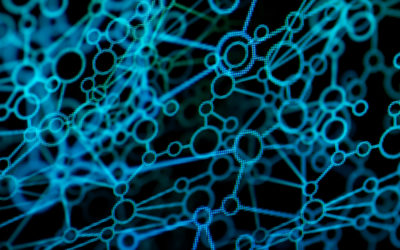Quick Hits
Daily brief research updates from the cognitive sciences

Yay, more good news for us coffee drinkers!
I am always interested in the research that is coming out with regard to coffee as a coffee drinker. Yes, so I am biased. Coffee had been considered unhealthy for many years but research over the years has shown multiple health benefits (including living longer) – I first discovered this after encountering a coffee expert who told me of all the antioxidants and natural ingredients in coffee beans – I was converted.
This research just out, though, is even more fascinating – it showed that espresso can reduce clumping of proteins in the brain that lead to Alzheimer’s – wow!
In this fascinating research by Roberto Tira and colleagues of the University of Verona in Italy – no surprise in the location there – they incubated various coffee compounds found in freshly extracted coffee and also a complete espresso compound next to tau proteins.
Tau proteins are natural occurring in the human brain but it is precisely these that end up becoming dysfunctional and clumping up to form blobs of protein that the brain can no longer clean out. This is also a key indicator of Alzheimer’s.
When these molecules from coffee were incubated alongside the proteins the fibres they formed were shorter and didn’t form into sheets suggesting that they would be less likely to form clumps. What’s more the most effective at reducing this was the full espresso compound rather than individual molecules extracted from the espresso compound.
This could be for many reasons such as having multiple molecules that are beneficial.
Obviously this was a lab test and in the human body your espresso doesn’t go directly to your brain – alas. But, nevertheless, another piece in the increasing large collection of research showing that coffee has multiple potential benefits.
Another shot of espresso for me then●

Andy Habermacher
Andy is author of leading brains Review, Neuroleadership, and multiple other books. He has been intensively involved in writing and research into neuroleadership and is considered one of Europe’s leading experts. He is also a well-known public speaker speaking on the brain and human behaviour.
Andy is also a masters athlete (middle distance running) and competes regularly at international competitions (and holds a few national records in his age category).
Reference
Roberto Tira, Giovanna Viola, Carlo Giorgio Barracchia, Francesca Parolini, Francesca Munari, Stefano Capaldi, Michael Assfalg, Mariapina D’Onofrio.
Espresso Coffee Mitigates the Aggregation and Condensation of Alzheimer′s Associated Tau Protein.
Journal of Agricultural and Food Chemistry, 2023; DOI: 10.1021/acs.jafc.3c01072
More Quick Hits
Why Children Learn More Quickly Than Adults
It might be obvious that kids learn quicker than adults – but this shows for the first time why.
Right, so artificial networks also need sleep!
We need sleep but we are biological entities – that artificial networks improve performance with sleep is pretty fascinating, and insightful.
Making Voting More Effective for Better Decisions
Most of the most important decisions made in business and society are the result of votes – but not all voting methods are equally effective…
We’re Bad at Remembering How Happy We Were
The past ain’t always better – according to this latest research at least…
100 Years of Research Reveal the Most Effective Methods for Learning
New technologies, new research? No, the old methods are the best, and it’s surprisingly simple.
Why Too Much Talent May Harm Performance
This may sound like a strange thing to say – but talent and team coordination are different things…






